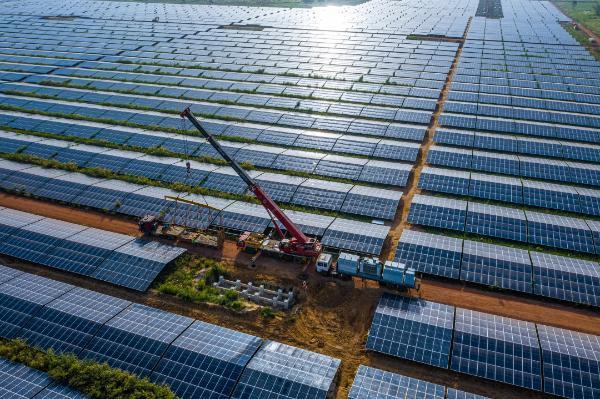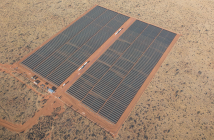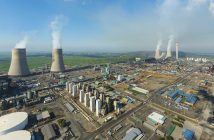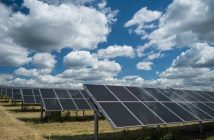- Senegal will add more clean energy to its national grid thanks to the newly opened Kael and Kahone solar plants.
- Developed under the World Bank Group’s ScalingSolar program, the plants will provide energy at tariffs of under 4 Euro cents per kW/h, one of the lowest prices for electricity in Sub-Saharan Africa.
- Together, the plants are expected to offset 89,000 tons of CO2 emissions per year.
Nearly 540,000 people in Senegal will get access to clean and affordable power following the launch of two solar photovoltaic (PV) plants, financed by IFC, the European Investment Bank and Proparco, under the World Bank Group’s Scaling Solar program.
The two plants that launched operations last month are located in Kael and Kahone in Western Senegal and have a total capacity of 60MW. They will provide energy at tariffs of 3.98 and 3.80 Euro cents per kilowatt hour, respectively – one of the lowest prices for electricity in Sub-Saharan Africa – and will help avoid 89,000 tons of CO2 emissions per year.
The two plants are sponsored by Engie, Meridiam, and the Senegalese Sovereign Wealth Fund for Strategic Investments (FONSIS). The competitive tendering was led by Senegal’s Energy Regulatory Commission (CRSE).
Although the proportion of Senegalese people with access to electricity has increased sharply over the past 30 years, nearly a quarter of the population still lacks access. Senegal´s power sector has been historically reliant on costly fuel imports, with about 80 percent of its energy mix being oil-based.
“The Kael and Kahone solar power plants exemplify our commitment to supporting Senegal’s transition to cleaner, more affordable energy, while creating business opportunities for local communities. These two projects are expected to provide the equivalent of 540,000 people with cheap, renewable electricity. This is a record in sub-Saharan Africa, which will support more than 400 direct and indirect local jobs”, said Mathieu Peller, COO of Méridiam Afrique.
The financing package of the plants includes senior loans worth €38 million from IFC, the Finland-IFC Blended Finance for Climate Program, the European Investment Bank, and French development finance institution Proparco. The Multilateral Investment Guarantee Agency (MIGA), a member of the World Bank Group, issued €6.9 million in guarantees to support the plants, providing protection against non-commercial risks for a duration of up to 15 years.
The Kahone and Kael projects were implemented in partnership with the United States Agency for International Development (USAID)’s Power Africa, the Government of the Netherlands, The Rockefeller Foundation, and The Infrastructure Development Collaboration Partnership Fund (DevCo).
Author: Bryan Groenendaal











